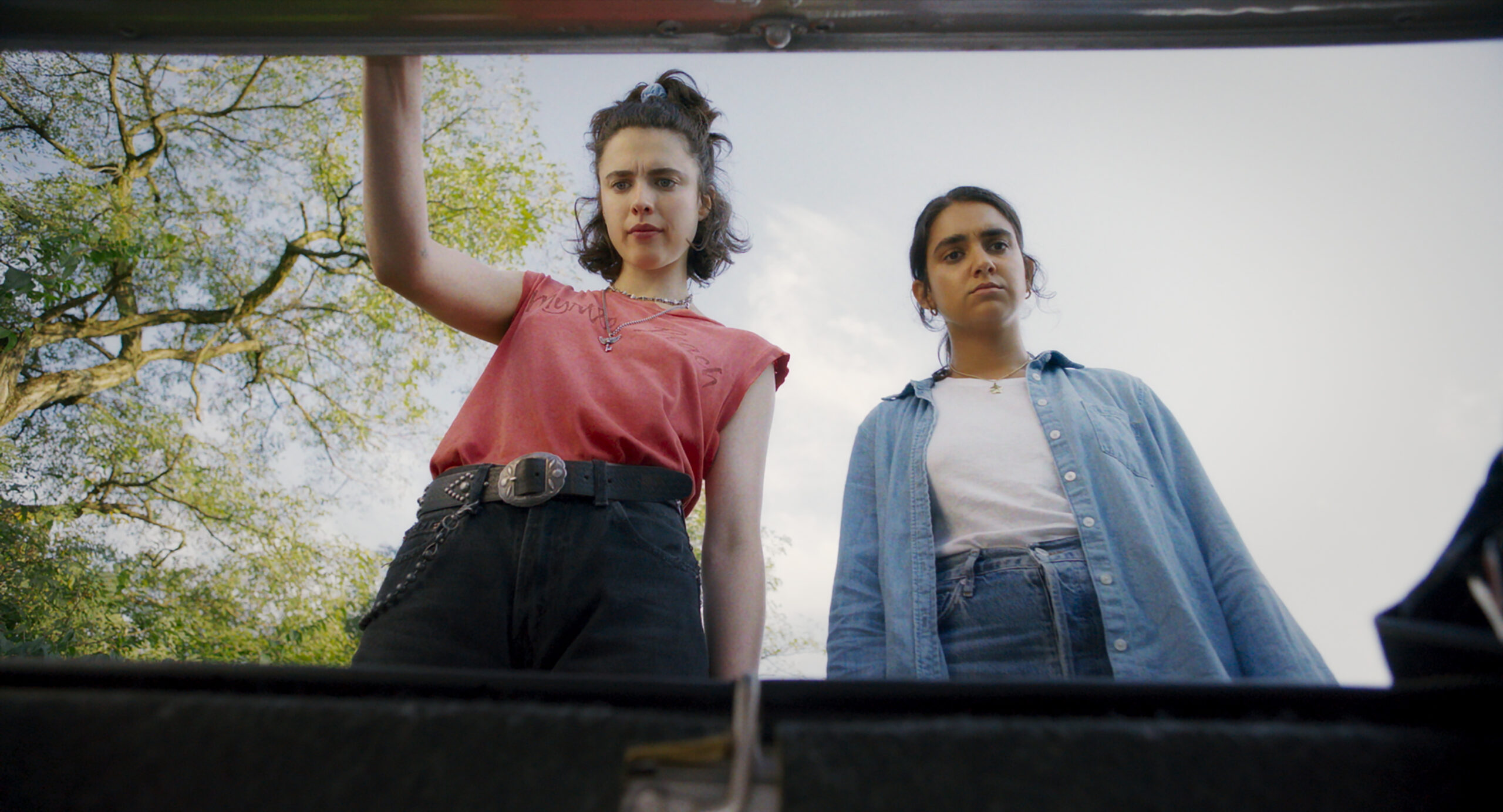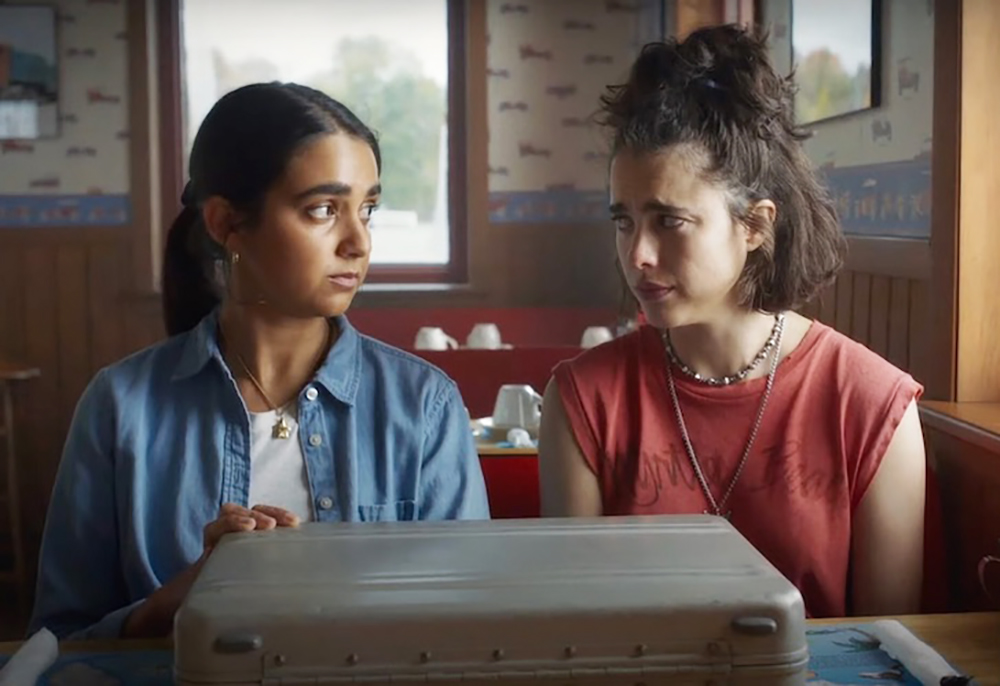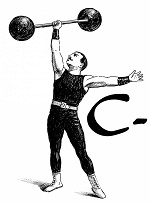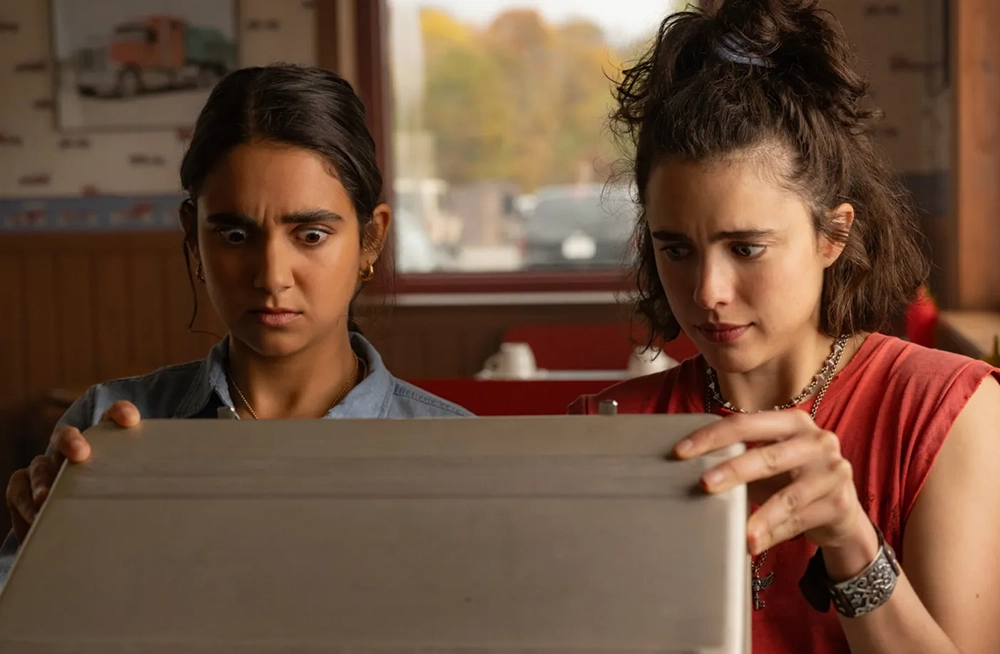Ethan Coen’s first solo narrative feature, the shaggy B-movie-inspired “Drive Away Dolls,” has a fun leading duo of Margaret Qualley and Geraldine Viswanathan. But they aren’t enough to lift the comedically flat screenplay contained within this crime caper reminiscent of the oddball comedies he and his brother did.
The Coen Brothers (Ethan and Joel Coen) are legendary American filmmakers whose decade-spanning filmography, crossing through various genres, has inspired plenty, both in their artistic vision and daring nature. Their skills range from the noir-inspired “Blood Simple” to the zaniness of “Raising Arizona.” They have found many ways to reinvent their style while maintaining a few quirks and aspects that make the audience know they are watching one of their pictures. When they were at their best, the filmmaking duo managed to create some projects that shifted the paradigm of cinema. They are recognized for their ability to evolve within their usual storytelling mechanisms, whether it is more focused on drama, thriller, or comedy. However, something happened a few years ago that caught cinephiles by surprise. The two have decided to part ways and pursue different projects—each going their own route of expression and scope.
A Coen Breakup and New Directions
Like many recognizable duos, a breakup occurred. But it paves the way for seeing a new version of the filmmakers we admire and cherish. Joel decided to go on a more artistic route, making the astonishing “The Tragedy of Macbeth,” a monochrome melancholy-driven adaptation of William Shakespeare’s classic play. It was a gloomy picture that immediately felt like a departure from what we have seen in the Coens’ filmography. However, Ethan Coen’s first solo narrative feature, “Drive Away Dolls,” doesn’t feel that way. When it was first introduced, Ethan Coen mentioned that this will be the first installment of a “trilogy” focused on queer, short B-movies. While it sounds like he is taking a few steps back instead of moving forward, there’s plenty to work with these types of films, specifically if they dwell on the more obscure and darker version of them.
Of course, that isn’t his jurisdiction. But there are plenty of ideas that can surge with this idea. However, rather unfortunately, it is way too reminiscent of the zany comedies that he and his brother did from time to time, in the likes of “The Big Lebowski”, “Burn After Reading,” and “The Ballad of Buster Scruggs,” yet without the magic and comedic precision that made the best of them entertaining. Co-written by his wife Tricia Cooke, Ethan Coen’s film is a B-movie in its heart, yet contains the multi-million dollar Hollywood gloss that drains the film from its throwback style and charm. The year is 1999; it’s near the birth of a new decade. And the lives of two ladies will change drastically, for better or worse.

A B-Movie Inspired Chase Film
After recently being dumped by her possessive police officer girlfriend, Sukie (Beanie Feldstein), the wild and carefree Jamie (Margaret Qualley, owning a creaky yet campy southern accent) is thinking about leaving Philadelphia once and for all. She needs a change of pace and scenery to take everything that has happened recently out of her mind. To be more specific, she wants to leave teh gloomy skies behind for a more calm and sun-bathed Tallahassee. Jamie wants to find something of meaning beyond her current location. So, she packs her bags and goes on the road. But she isn’t going alone on this cross-city trip. Jamie convinces her prudish A-student friend, Marian (Geraldine Viswanathan), to accompany her on this fifteen-hour road trip.
The two of them are complete opposites. While one is free-spirited, the other is more introverted. Yet that’s how Jamie convinces her to join. She says that Marian needs to let loose for a few days and that those experiences will do her good. At first, Marian isn’t that inclined to tag along. But sooner rather than later, the two manage to rent a car and head to the Florida coast. If you thought that it was going to be the two of them driving around and encountering girls during their multiple stops, you are wrong. After their car breaks down, they notice that their rented vehicle has a “special present” in the trunk. It is a briefcase which’s contents will shift their adventures in another direction. What’s inside the briefcase?
Well, that reveal is going to take some time. (And when Coen finally does so, it is in an unsatisfying manner.) That car wasn’t meant for them. It was set up by criminals for The Chief (Colman Domingo) to take. This confusion by the car rental company begins a chain of events in which Jamie and Marian are chased by inept thugs and criminals. With this set-up, you can immediately notice the B-movie roots “Drive Away Dolls” is rooted on. It is a quick-and-easy chase movie with comedic panderings that are designed for the two leads to shine through and through. And there are moments where you see these elements prosper, mostly because of its talented duo helming the project.
The Zaniness of the Coen’s Comedies in the Most Juvenile Fashion Possible

Qualley and Viswanathan have their moments to stand out, particularly the latter. Yet film finds itself being way too flat in terms of its comedy and thriller elements. Looking at “Drive Away Dolls” from the perspective of it being Ethan Coen’s solo introductory work, you get the feeling that it lies in the shadows of his collaborative work with his brother. And it loses the purpose of creating this film in the first place. Every single tidbit is tied to a Coen picture, from the mannerisms or the zaniness of the story’s development. That isn’t a bad thing, perse. Some hints and nods to the past occasionally do service to a film. But in this case, it doesn’t. The reason why is that Ethan Coen constructs it in the most juvenile fashion imaginable.
There is no intention for this to be a serious picture in the least. Everything has a comedic undertone to it. However, that serves to its benefit and detriment because it isn’t camp but rather unwarranted ridicule. The jokes are way too childish for their own good. The chase element of the story makes the film not only disposable but also sluggish. It makes this eighty-four-minute feature feel longer than it needs to be. And with that, you commit the most crucial error in making a B-movie. Ethan Coen wants to shower the project with more shaggy and zany scenarios that feel way too cramped for what it actually wants to be. In the process, “Drive Away Dolls” loses its sense of identity and instead becomes one of the many.

“Drive Away Dolls” is now playing in theaters worldwide.


